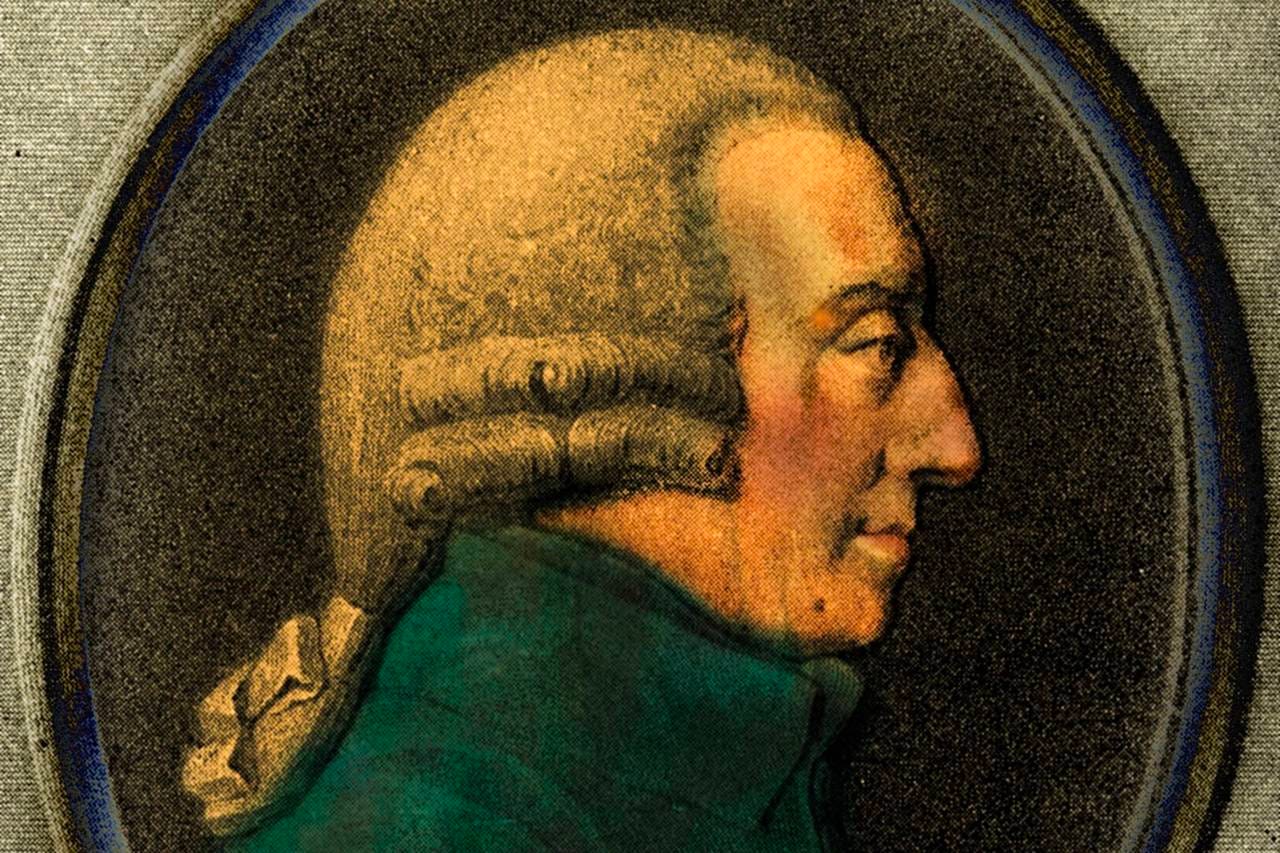Morality and politics
Franklin or Smith?
Can a government be good when the people are not? Benjamin Franklin didn’t think so, at least not in a republic.“Only a virtuous people are capable of freedom,” he wrote. "As nations become more corrupt and vicious, they have more need of masters.”
This was a bold statement from Franklin, given that he had helped establish a free republican government for the United States. He was putting his life’s crowning achievement on the line. The American people had better be virtuous if they wanted their republic—his republic—to last.
It was lucky Franklin died when he did, in 1790. Enough of the glow of the American revolution persisted that Franklin and other stalwarts of that contest could imagine that their victory reflected the greater virtue of the American people compared to the British. Within half a decade, though, Americans had shown themselves capable of the same political vices they had condemned in their colonial masters. Political parties, which they had observed in British politics and assumed were a consequence of British vice, emerged on American soil, among many of the same people who had fought and won the revolution. Franklin must have been writhing in his grave in the Christ Church burial ground in Philadelphia.
Franklin wasn't the right person to weigh in on the question of virtue in public life. He didn't believe in hell, and he didn't consider that moral construct necessary to keep human behavior in line. He thought humans were capable of virtue on their own. As a young man, he conceived the idea of making virtue habitual and therefore easy. He composed a scorecard of thirteen virtues and kept a daily count of offenses against them. Each week he would work on one virtue, striving to reduce the daily tally. The idea was that by the end of the week that virtue would come naturally to him. He would move on to the next. At the end of thirteen weeks. He would start over again. Four repetitions would fill a year, at the end of which he would be practically perfect.
Vice was a more cunning foe than he anticipated. Temperance would lie low until he shifted his focus to order. Humility haunted him for even imagining he could become perfect. Amid the week on silence, he would question whether that trait was a virtue at all in someone as full of good ideas and bon mots as he was. He eventually abandoned the experiment. Yet he came away still thinking humans were capable of much virtue, if not, complete virtue.
Franklin's heirs in government were not so confident. As they aligned in parties—Federalists against Republicans at first, later Whigs against Democrats, and then Democrats against Republicans— they resigned themselves to a politics of imperfect virtue, if not outright vice. The parties reciprocally checked each other, preventing the evil impulses of either from carrying away the country.
At a time when Americans were adopting the principles of Adam Smith in their economic affairs, they applied one of the Scottish philosopher’s most famous adages to their politics. “It is not from the benevolence of the butcher, the brewer, or the baker, that we expect our dinner, but from their regard to their own interest,” said Smith. The profit-seeking competition among the tradesmen kept their self-interest in check; the competition of the parties kept the pols in place.
For the most part Americans were content with this separation of morality and politics. Occasionally the twain met, as when teetotalers rewrote the Constitution to exorcise Demon Rum. But the exorcism didn't last. The devil's acolytes repealed the ban and tippled anew.
Yet the temptation to mix morality and politics never rests. It has reappeared in the last few decades, during which the political arena has become a stage for competing morality plays. From stage right emerge opponents of abortion and of library books dealing with topics of sex and gender that make them uncomfortable. From stage left come cadres of improvers calling out racism, misogyny, homophobia, and transphobia past and present and demanding society and government join the denunciation.
The moralization of politics renders governing at times impossible. Tommy Tuberville, a Republican senator from Alabama, has managed to block military promotions in protest of the Pentagon’s policy on abortion, compromising American national security to make a moral point. During the last few years government agencies and business corporations have felt obliged to conduct diversity training to answer or preempt charges of institutional racism and sexism. Partisans of right and left share little except horror at making common cause on anything with those evil people on the other side.
Franklin feared too little virtue; we’re plagued with too much. Better to follow Smith and leave virtue out of the equation. Let people follow their material interests, and rely on others’ interests to counterbalance them.


We're definitely not plagued with too much virtue... Too much virtue signaling, on the other hand...
Yet without government regulation, we get from the butcher tainted meat and from the pharmaceutical purveyor an opioid epidemic that's killing 100,000 a year. It also seems that the concerns of the nebulous "left" over racism and gender equality are not moral - Christians are free to hate and exclude any group from their own ranks - but questions of rights - a lunch counter operator must serve customers without discriminating by race not because it's morally right but because it's the law.